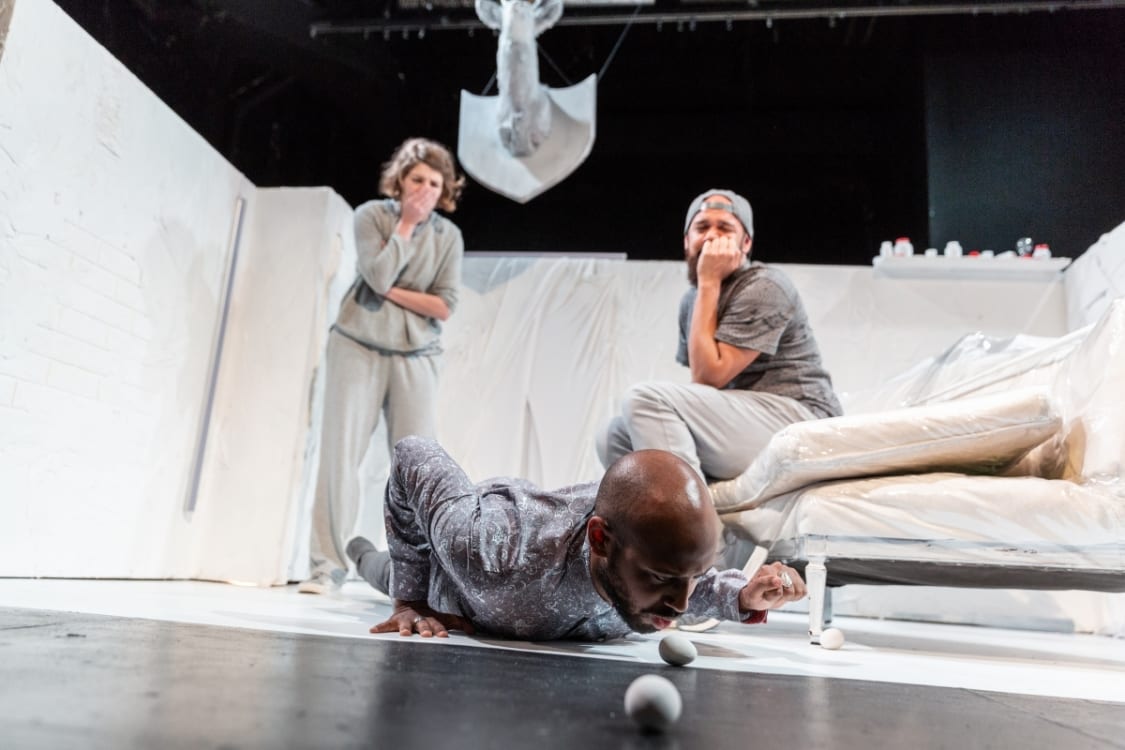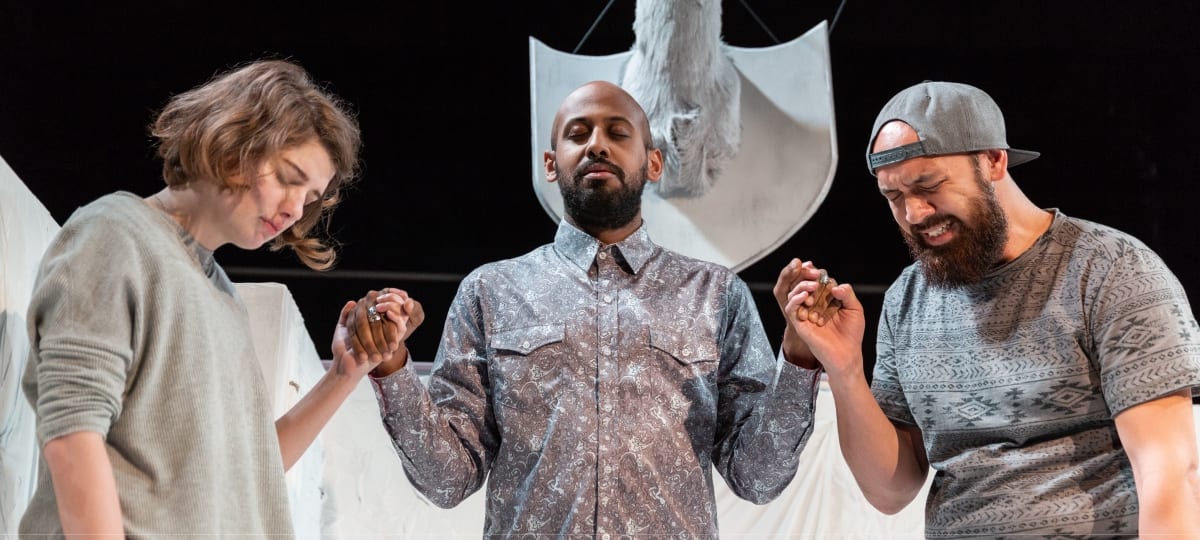The whole thing is just off-kilter from the start, but that’s the point.
There’s the stark white room where objects appear only as they’re mentioned in conversation. There’s the clearly unnatural way the characters speak – overly formulaic, evocative of an inner stream of consciousness spoken out loud, or perhaps of an alien on their very first day on Earth. Not to mention the unsettlingly matter-of-fact, yet bright, tone with which they speak about murder.
But once the playwright (well, the actress playing her) delivers the final monologue, a line from the beginning of the show comes back to mind: “What even is real about telling your story? It’s just a memory’s memory’s memory of itself.” And everything falls into place: the meaning of the show’s title, the rest of the show’s placement in linear time, and the realization that the show itself is a “memory’s memory’s memory,” a way of sorting out a traumatic event while acknowledging that some things just can’t be neatly sorted.
I Thought I Would Die But I Didn’t is structured in three parts. The first strips away the trappings of the “New York apartment play” trope, leaving only a couple, a neighbor, and The Sound they heard on the night of a woman’s death that they can’t shake from the room. The second traces the backstory of the murder in the format of a 20/20 true-crime documentary special. Finally, the third part features the playwright’s own recollection of the 2011 crime that inspired the play, bringing the first two parts together and making some sense of it all.

It’s easy to get a little lost in the disjointed first two parts. The show is a sort of adventure quest: dodge the falling deer head, solve the puzzle of how much of the memory is true, and trek through the dry desert of a murder confessional that goes on just a tad too long, in order to reach the treasure at the end: a conclusion that you don’t even know if you’ll get.
You’ll likely find yourself with more questions than answers. You’ll laugh at odd turns of phrase and the way a grown man impersonates a schoolgirl with a lisp, and then step back to wonder why neither that laugh – nor any reaction – feels quite right by the next moment. That appears to be the intention: to create a sort of Brechtian estrangement until the third part comes along to provide a more straightforward look at what transpired.
Caitlin Morris, as playwright Bailey Williams, delivers a poignant monologue in that third part with enough clarity and authenticity to make up for the lack of it until the end. She sheds the formalities of the first two parts’ ways of telling the story in favor of a personal testimonial, finally letting herself and the audience deeply feel her true grief, guilt, and…gratitude?
It takes a while to get there, but it’s worth the wait.

